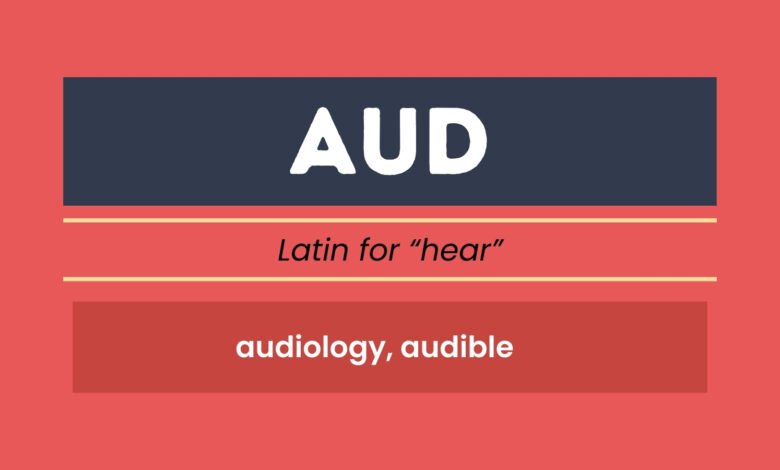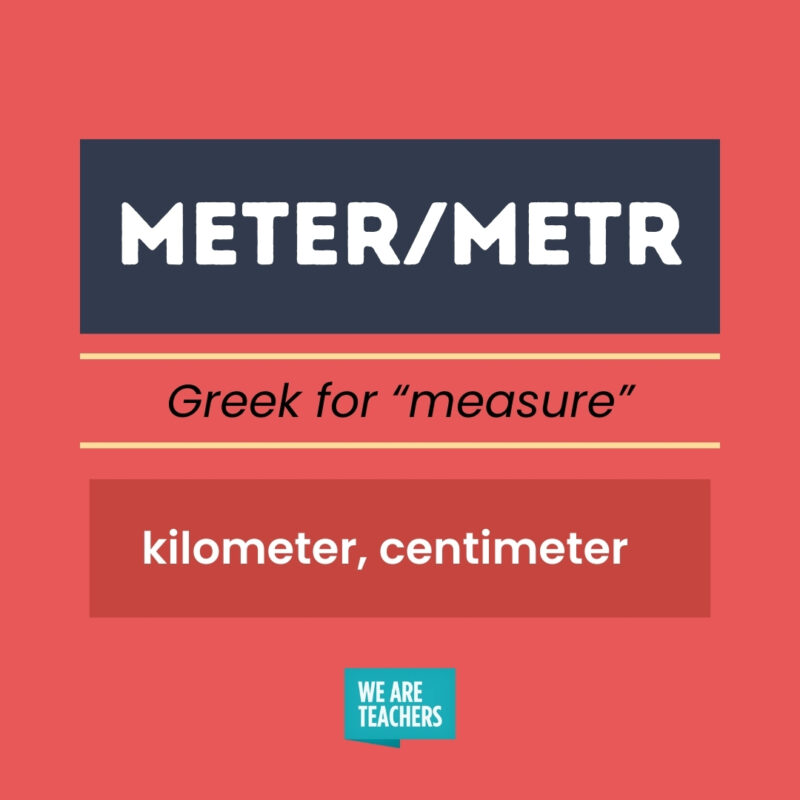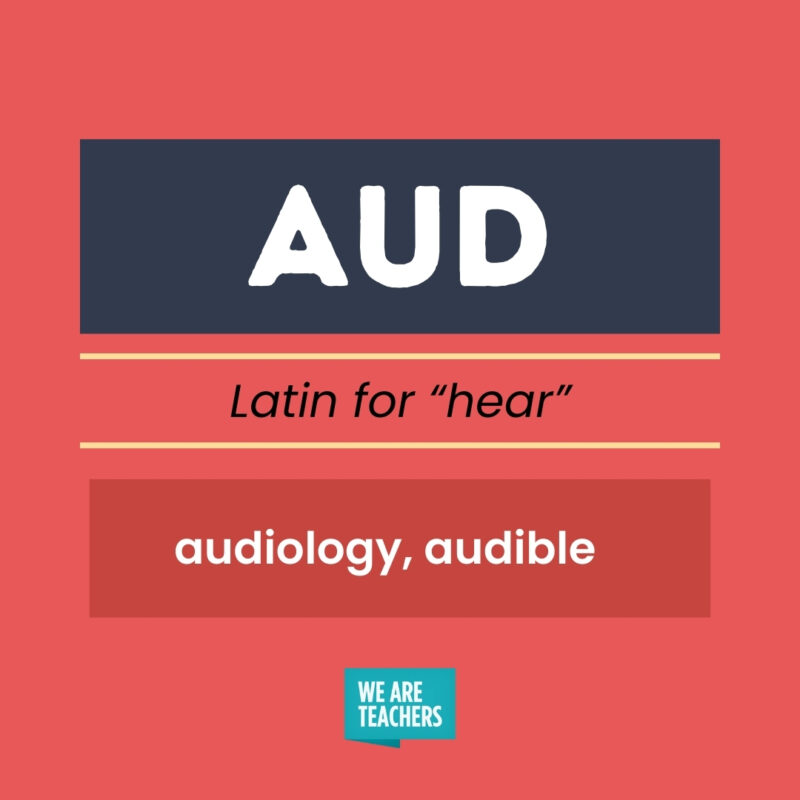85+ Greek and Latin Root Words To Boost Vocabulary and Spelling

If you’re looking for an easy way to boost your students’ vocabulary and reading comprehension, teach them Greek and Latin root words! Once they know the meanings of the root words, they can figure out the definitions of so many other words. Here’s why it works and the best root words to teach kids in grades K-12.
What are root words?
A root word is a basic building block used to create larger English words. Root words come from other languages, often Greek and Latin, and can’t usually stand on their own. Instead, they’re combined with prefixes, suffixes, and/or other root words to create a whole new word. Take a look at these examples:
- auto (Greek for self) + graph (Greek for write) = autograph (to write your own name)
- bi (prefix meaning two) + cycl (Greek for circle) = bicycle (two-wheeled vehicle)
- contra (Greek for against or opposite) + dict (speak or say) = contradict (to say the opposite of something is true)
- manu (Latin for hand) + fact (Latin for make or do) + ure (suffix meaning the process of) = manufacture (the process of making something, originally by hand)
You’ll even find examples that combine both Greek and Latin root words in a single word!
- aqua (Latin for water) + phobia (Greek for fear of) = aquaphobia (fear of water)
- dys (Greek for bad) + functio (Latin for to perform) = dysfunction (not performing correctly)
Modern English is a real hodgepodge of a language, influenced by Latin, Greek, French, German, Hindi, Norse, Arabic, and Old English, just to name a few. Greek and Latin root words are among the most common, especially when it comes to words used in academia or science.
Why teach Greek and Latin root words?
Knowing the definitions of common Latin and Greek roots gives students a real boost when it comes to working out the meanings of unknown words. When you combine this information with a good working knowledge of prefixes and suffixes, it’s easy to make sense of many words, even out of context. (This can be very helpful on standardized tests like the SAT.)
It’s important to make sure your students know that while root words can be a good starting point, they can also be misleading sometimes. “Discipline” comes from the Latin word for student or learner (discipulus). In English, discipline can mean an area of study, which is related to the Latin root. But it can also mean self-control, or a form of punishment, meanings that the root word don’t make clear.
In other cases, the root word is downright confusing, though it made sense in other languages. For instance, salary comes from the Latin root sal, which means salt. If you know that Roman soldiers were partly paid in salt, it makes sense. But otherwise, knowing that root doesn’t really help.
That being said, knowing Greek and Latin roots is helpful more often that not. That’s why it’s worth sharing this list of the most common Greek and Latin root words with your students.
Greek Root Words (43)
acro
Meaning: high, top
Examples: acropolis, acrobat
anthropo
Meaning: human, human, humanity
Examples: anthropology, philanthropist
anti
Meaning: against
Examples: antidote, antibacterial
arch
Meaning: chief, first, rule
Examples: monarch, archaeology
ast / astro
Meaning: star
Examples: astronomy, astronaut
auto
Meaning: self
Examples: autograph, automatic
bio
Meaning: life
Examples: biology, biography
chrome
Meaning: color
Examples: chromatic, monochrome
chron
Meaning: time
Examples: chronology, synchronize
cycl
Meaning: circle, wheel
Examples: bicycle, cyclone
dem
Meaning: people
Examples: democracy, epidemic
dyn / dynam
Meaning: power, strength
Examples: dynamo, dynamic
dys
Meaning: bad, difficult, abnormal
Examples: dysfunction, dystopia

geo
Meaning: earth
Examples: geography, geology
graph / gram
Meaning: write, draw
Examples: paragraph, grammar

hetero
Meaning: different
Examples: heterogeneous, heterosexual
homo
Meaning: same
Examples: homonym, homogeneous
hydr
Meaning: water
Examples: hydrant, hydroelectric
hyper
Meaning: over, above
Examples: hyperactive, hyperbole
hypo
Meaning: under, below
Examples: hypothermia, hypodermic
log / logy
Meaning: word, study
Examples: dialogue, biology
mega / megalo
Meaning: great, large
Examples: megaphone, megalopolis

metr / meter
Meaning: measure
Examples: speedometer, barometer
micro
Meaning: small
Examples: microscope, microchip
mis / miso
Meaning: hate
Examples: misogyny, misanthrope
morph
Meaning: form, shape
Examples: metamorphosis, morphology
narc
Meaning: sleep
Examples: narcotic, narcolepsy
naut
Meaning: sailor, ship
Examples: astronaut, nautical
nym
Meaning: name
Examples: pseudonym, antonym
path
Meaning: feeling, disease
Examples: sympathy, pathology
phil
Meaning: love
Examples: philosophy, philanthropist
phobia
Meaning: fear of
Examples: claustrophobia, arachnophobia
phon
Meaning: sound
Examples: telephone, symphony

photo
Meaning: light
Examples: photograph, photosynthesis
polis / polit
Meaning: city, citizen
Examples: metropolis, politics
pseudo
Meaning: false, pretended
Examples: pseudonym, pseudoscientific
psych
Meaning: mind, soul
Examples: psychology, psychic
scope
Meaning: look at, examine
Examples: microscope, periscope
syn
Meaning: together, with
Examples: photosynthesis, synchronize
techno
Meaning: art, craft, skill
Examples: technique, technology
tele
Meaning: far, distant
Examples: television, telescope
theo
Meaning: god
Examples: theology, monotheism
therm
Meaning: heat
Examples: thermometer, thermal
Latin Root Words (45)
ab
Meaning: away, off
Examples: abstain, absent
act
Meaning: to do
Examples: action, actor
ambi
Meaning: both, around
Examples: ambiguous, ambidextrous
aqua
Meaning: water
Examples: aquarium, aquatic

aud
Meaning: hear
Examples: audience, audible
bene
Meaning: good, well
Examples: benefit, benevolent

cent
Meaning: hundred
Examples: century, percent
circum
Meaning: around
Examples: circumference, circulate
contra / counter
Meaning: against, opposite
Examples: contradict, counteract
dict
Meaning: say, speak
Examples: dictate, predict

doc
Meaning: teach, prove
Examples: document, doctor
duc / duct
Meaning: lead
Examples: educate, conduct
fac / fact
Meaning: make, do
Examples: factory, manufacture
form
Meaning: shape
Examples: transform, uniform
fort
Meaning: strong
Examples: fortress, fortify
fract / frag
Meaning: break
Examples: fracture, fragment
fund / found
Meaning: bottom, base
Examples: foundation, fundamental
gen
Meaning: give birth to
Examples: genesis, generation
ject
Meaning: throw
Examples: project, eject
jur
Meaning: law
Examples: jury, jurisdiction
lev
Meaning: lift
Examples: Levitate, elevate
lumin / luc / lum
Meaning: light
Examples: illuminate, translucent
mal
Meaning: bad
Examples: malfunction, malevolent
manu / mani
Meaning: hand
Examples: manuscript, manicure
mater / matr
Meaning: mother
Examples: maternity, matriarch
mit / mis
Meaning: send
Examples: transmit, mission
mort
Meaning: death
Examples: mortal, immortal
multi
Meaning: many
Examples: multicolor, multimedia
omni
Meaning: all
Examples: omnivorous, omnipotent
pac
Meaning: peace
Examples: pacify, pact
pater / patr
Meaning: father
Examples: paternal, patriot

port
Meaning: carry
Examples: transport, portable
rupt
Meaning: break
Examples: interrupt, erupt
scrib / script
Meaning: write
Examples: describe, manuscript
sect / sec
Meaning: cut
Examples: section, dissect
sens
Meaning: feel
Examples: sensory, sentiment

spect
Meaning: look, see
Examples: inspect, spectator
struct
Meaning: build
Examples: construct, structure

terr
Meaning: earth
Examples: territory, terrain
timi
Meaning: fear
Examples: timid, intimidate
tract
Meaning: pull, drag
Examples: tractor, attract
vac
Meaning: empty
Examples: evacuate, vacuum
vid / vis
Meaning: see
Examples: video, vision
voc / voke
Meaning: call, voice
Examples: vocal, provoke
volv / volut
Meaning: roll, turn
Examples: revolve, evolution
Plus, check out these Fun and Easy Vocabulary Activities and Games for Every Grade!
Source link





